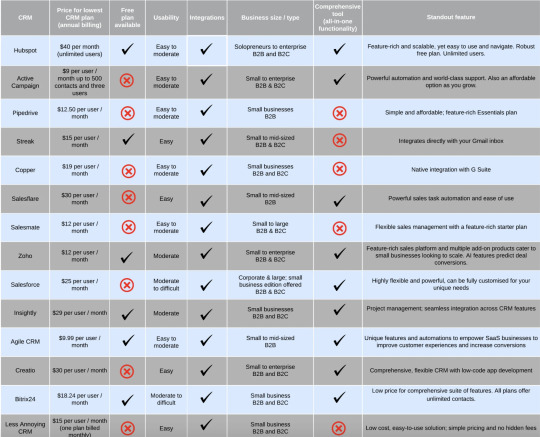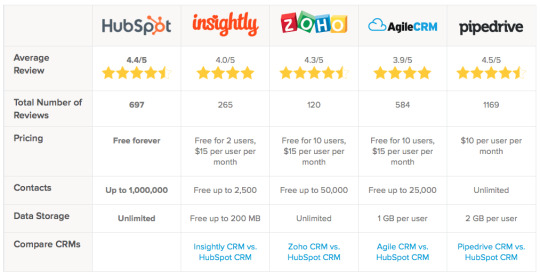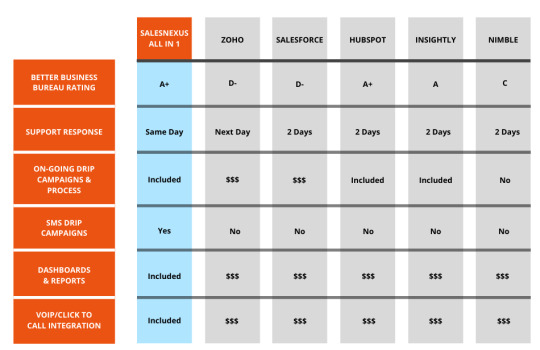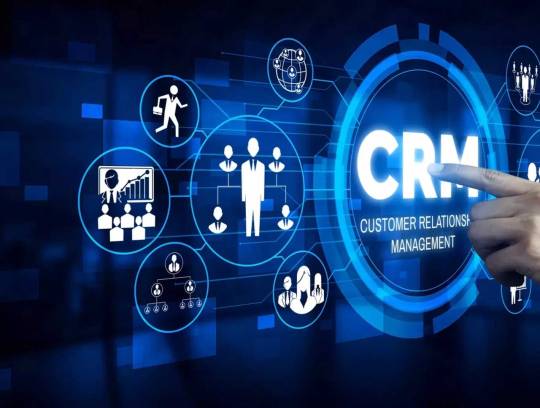#software crm
Explore tagged Tumblr posts
Text
The Biggest Mistakes Companies Make When Hiring B2B Sales Talents
Hiring the right B2B sales talent is one of the most critical decisions a company can make. A skilled sales team can drive revenue, build strong client relationships, and contribute to business growth. However, making the wrong hiring choices can lead to lost opportunities, wasted resources, and high turnover rates.
Many companies unknowingly fall into common hiring pitfalls that prevent them from securing top sales talent. From focusing too much on industry experience to neglecting soft skills and cultural fit, these mistakes can significantly impact a company's sales success.
In this article, we'll explore the biggest hiring mistakes companies make when B2B sales recruiters professionals and how to avoid them.

1. Lack of a Clear Hiring Strategy
One of the biggest mistakes companies make is not having a well-defined hiring strategy. Many organizations rush the hiring process, hoping to fill vacant sales positions quickly without a structured approach. This leads to hiring candidates who may not be the best fit for the role.
A clear hiring strategy should include:
A detailed job description outlining responsibilities and expectations
A structured interview process with predefined evaluation criteria
A focus on long-term fit rather than just immediate sales performance
Without a solid hiring plan, companies risk hiring sales professionals who lack the skills, motivation, or cultural alignment needed for success. Taking the time to develop a strategic approach can prevent costly hiring mistakes.
2. Overemphasizing Industry Experience
Many companies mistakenly believe that hiring sales professionals with extensive industry experience is the key to success. While industry knowledge is valuable, it does not necessarily guarantee strong sales performance.
Sales skills such as persuasion, communication, and negotiation are often more important than prior industry experience. Candidates with a strong sales background but limited industry knowledge can quickly learn the specifics of a new field.
A balanced hiring approach should consider:
A candidate’s ability to learn and adapt
Proven sales success in previous roles
A mix of industry knowledge and transferable sales skills
Instead of solely focusing on past industry experience, companies should prioritize raw sales talent and potential.
3. Ignoring Soft Skills and Emotional Intelligence
B2B Sales Recruitment Agency are about building relationships, understanding customer needs, and communicating effectively. While technical knowledge and sales experience are important, soft skills and emotional intelligence (EQ) play an equally vital role in sales success.
Key soft skills to look for in B2B sales candidates include:
Active listening and empathy
Strong communication and interpersonal skills
The ability to handle rejection and stay resilient
Emotional intelligence helps sales professionals connect with prospects, navigate objections, and close deals. Companies that overlook these qualities may end up with sales reps who struggle to build meaningful client relationships.
4. Poorly Defined Sales Metrics and Goals
Without clear performance expectations, it’s difficult to hire and manage a successful sales team. Many companies fail to establish measurable goals and key performance indicators (KPIs) before hiring, leading to confusion and misaligned expectations.
Effective sales hiring should involve:
Setting clear revenue targets and quotas
Defining success metrics such as conversion rates and pipeline growth
Aligning compensation with performance goals
By clearly defining sales objectives, companies can attract candidates who understand expectations and are motivated to achieve results.
5. Relying Too Much on Resumes and Interviews
Traditional hiring methods, such as reviewing resumes and conducting interviews, do not always reveal a candidate’s true sales potential. A polished resume may highlight impressive achievements, but it doesn’t guarantee that a candidate can deliver results in a real-world sales environment.
Alternative evaluation methods include:
Role-playing exercises to test sales skills
Case studies and problem-solving scenarios
Trial sales projects or probationary periods
By incorporating practical assessments, companies can identify candidates who can truly excel in a B2B sales role.
6. Failing to Assess Cultural Fit
Cultural fit is often overlooked during the hiring process, yet it plays a crucial role in a salesperson’s success within a company. A sales candidate may have excellent skills and experience, but if they do not align with the company’s values, work environment, and team dynamics, they are less likely to thrive.
A poor cultural fit can lead to:
Lower job satisfaction and engagement
Increased turnover rates
Conflicts within the sales team
To assess cultural fit, companies should:
Clearly define their company values and work culture
Include behavioral interview questions to gauge alignment
Introduce candidates to potential teammates during the hiring process
Hiring sales professionals who align with the company’s culture improves collaboration and long-term retention.
7. Neglecting Continuous Training and Development
Another major mistake companies make is assuming that training ends after onboarding. The B2B Sales Training Companies are constantly evolving, and even the best sales professionals need ongoing development to stay ahead.
A lack of continuous training can result in:
Stagnant sales performance
Difficulty adapting to new market trends
Decreased motivation and engagement
Effective training programs should include:
Regular sales coaching and mentorship
Workshops on emerging sales techniques
Access to industry conferences and professional development resources
Investing in ongoing training keeps sales teams competitive and ensures long-term success.
8. Not Utilizing Data-Driven Hiring Practices
Many companies still rely on intuition when hiring sales talent instead of leveraging data-driven recruitment methods. While gut feeling can sometimes work, it often leads to bias and poor hiring decisions.
Data-driven hiring improves accuracy by:
Using AI-powered recruitment tools to analyze candidate potential
Tracking historical hiring trends to refine selection criteria
Assessing performance data from previous hires to identify success patterns
By integrating data into the hiring process, companies can reduce turnover and improve sales team performance.
9. Hiring Based on Gut Feeling Instead of Data
Even experienced hiring managers can fall into the trap of making decisions based on intuition rather than objective evaluation. This often leads to inconsistent hiring outcomes and a lack of predictability in sales performance.
Common biases that affect hiring include:
Confirmation bias – Favoring candidates who confirm preexisting beliefs
Halo effect – Overestimating a candidate’s abilities based on one strong trait
Similarity bias – Preferring candidates who resemble the interviewer
To avoid these biases, companies should:
Use structured interviews with standardized scoring
Implement skills assessments and role-specific tests
Gather feedback from multiple interviewers before making a decision
A more objective hiring approach leads to better results and a stronger sales team.
10. Underestimating the Importance of Onboarding
A strong onboarding process sets the foundation for a salesperson’s success. Unfortunately, many companies either rush through onboarding or lack a structured program, leading to poor performance and early turnover.
Common onboarding mistakes include:
Failing to provide clear product and market training
Overloading new hires with information too quickly
Not assigning mentors or sales coaches
An effective onboarding program should:
Last at least 60-90 days with a structured plan
Include hands-on sales training and role-playing exercises
Provide ongoing feedback and coaching
A well-designed onboarding experience ensures that new hires integrate smoothly and start delivering results faster.
11. Not Offering Competitive Compensation Packages
Top B2B sales professionals expect competitive salaries and incentives. Companies that offer below-market compensation packages risk losing top talent to competitors.
Common mistakes in sales compensation include:
Rigid salary structures with low commission potential
Unclear or overly complex bonus plans
Lack of performance-based incentives
To attract and retain top sales talent, companies should:
Offer a competitive base salary with uncapped commission opportunities
Provide clear and transparent bonus structures
Include additional perks such as stock options, travel incentives, or career development programs
A well-designed compensation plan motivates sales teams and boosts performance.
12. Failing to Evaluate Long-Term Potential
Many companies focus solely on immediate sales results rather than assessing a candidate’s long-term growth potential. Sales Recruitment Services Hiring for short-term needs can lead to high turnover and missed opportunities for internal promotions.
To identify long-term potential, companies should:
Look for candidates with leadership qualities
Assess a candidate’s ability to adapt to changing sales environments
Provide career development plans and growth opportunities
Hiring with the future in mind helps companies build strong sales teams with lasting impact.
13. Ignoring the Candidate Experience
The way companies handle the hiring process affects their reputation and ability to attract top talent. A negative candidate experience can discourage high-quality applicants from joining the company.
Signs of a poor candidate experience include:
Long and unorganized hiring processes
Lack of communication or delayed responses
Impersonal interviews that fail to engage candidates
To improve the candidate experience, companies should:
Streamline the hiring process with clear timelines
Maintain open and transparent communication
Provide feedback to all candidates, even those not selected
A positive candidate experience enhances employer branding and attracts top-tier sales professionals.
14. Not Leveraging Employee Referrals
Employee referrals are one of the most effective ways to find high-quality sales talent, yet many companies fail to utilize this hiring strategy. Employees often know strong candidates within their network who would be a good fit for the company.
Benefits of employee referrals include:
Faster hiring process and reduced recruitment costs
Higher-quality candidates with a proven track record
Improved cultural fit and team cohesion
To encourage referrals, companies should:
Offer referral bonuses or incentives
Make the referral process simple and accessible
Recognize and reward employees who refer successful hires
Leveraging internal networks can significantly improve hiring outcomes.
#sales#recruitment#sales recruitment#sales technology#sales enablement#sales consultant#sales techniques#sales training#sales management#sales consulting#salesforce#crm#sales crm#software crm#training#trending#viral#viral trends#viralpost
0 notes
Text
Top five crm software compared with table
CRM software is an essential tool for businesses of all sizes to manage customer relationships and improve sales. With so many options available, it can be challenging to choose the right CRM software for your business. In this article, we will compare the top five CRM software options to help you make an informed decision.

1. HubSpot CRM
HubSpot CRM is a popular CRM software that offers a range of features to help businesses manage their customer relationships. It is a free CRM solution that is easy to use and offers a range of integrations with other business tools. HubSpot CRM is best suited for small to medium-sized businesses.
Pros
HubSpot CRM is a free solution that offers a range of features to help businesses manage their customer relationships.
It is easy to use and offers a range of integrations with other business tools.
HubSpot CRM offers a range of marketing and sales tools to help businesses improve their sales and marketing efforts.
It offers a user-friendly interface that makes it easy to navigate and find the tools you need.
Cons
HubSpot CRM may not be the best option for larger businesses that need more advanced features and tools.
Some users may find the free version to be limited in terms of features and functionality.
2. Salesforce
Salesforce is one of the most popular CRM software options available. It is a cloud-based solution that offers a range of features and tools to help businesses manage their customer relationships. Salesforce is best suited for medium to large-sized businesses.
Pros
Salesforce offers a range of features and tools to help businesses manage their customer relationships.
It is a cloud-based solution that can be accessed from anywhere.
Salesforce offers a range of integrations with other business tools.
It offers a user-friendly interface that makes it easy to navigate and find the tools you need.
Cons
Salesforce can be expensive, especially for smaller businesses.
Some users may find the interface to be overwhelming at first, as there are many features and tools to explore.
3. Freshsales
Freshsales is a comprehensive and smart solution to discover leads and boost engagement. It is a cloud-based solution that offers a range of features and tools to help businesses manage their customer relationships. Freshsales is best suited for small to medium-sized businesses.
Pros
Freshsales offers a range of features and tools to help businesses manage their customer relationships.
It is a cloud-based solution that can be accessed from anywhere.
Freshsales offers a range of integrations with other business tools.
It offers a user-friendly interface that makes it easy to navigate and find the tools you need.
Cons
Freshsales may not be the best option for larger businesses that need more advanced features and tools.
Some users may find the pricing to be expensive, especially for smaller businesses.
4. Zoho CRM
Zoho CRM is a classic full-stack CRM that helps businesses of all sizes work and scale. It is a cloud-based solution that offers a range of features and tools to help businesses manage their customer relationships. Zoho CRM is best suited for small to medium-sized businesses.
Pros
Zoho CRM offers a range of features and tools to help businesses manage their customer relationships.
It is a cloud-based solution that can be accessed from anywhere.
Zoho CRM offers a range of integrations with other business tools.
It offers a user-friendly interface that makes it easy to navigate and find the tools you need.
Cons
Zoho CRM may not be the best option for larger businesses that need more advanced features and tools.
Some users may find the interface to be overwhelming at first, as there are many features and tools to explore.
5. Less Annoying CRM
Less Annoying CRM is a simple CRM built just for small businesses and their teams. It is a cloud-based solution that offers a range of features and tools to help businesses manage their customer relationships. Less Annoying CRM is best suited for small businesses.

Pros
Less Annoying CRM is a simple and easy-to-use solution that is built just for small businesses.
It is a cloud-based solution that can be accessed from anywhere.
Less Annoying CRM offers a range of integrations with other business tools.
It offers a user-friendly interface that makes it easy to navigate and find the tools you need.
Cons
Less Annoying CRM may not be the best option for larger businesses that need more advanced features and tools.
Some users may find the pricing to be expensive, especially for smaller businesses.

In conclusion, these five CRM software options offer a range of features and tools to help businesses manage their customer relationships. HubSpot CRM is a free solution that is best suited for small to medium-sized businesses. Salesforce, Freshsales, and Zoho CRM are cloud-based solutions that offer a range of features and tools to help businesses manage their customer relationships. Less Annoying CRM is a simple and easy-to-use solution that is built just for small businesses. By comparing these five CRM software options, you can choose the one that best fits your business needs.
#crm software#software crm#10 best crm software#software crm system#how to make crm software#what is the best crm software#how to use crm software#is crm a software#famous crm software#how to sell crm software#what does crm software stand for#does google have a crm software#does google have crm software#what is crm software stand for#what does crm software mean#how much does crm software cost#what does crm stand for in software#what does crm software do#what crm software does#what is crm software used for#what are the best crm software#which crm software is best#how to learn crm software#what is the most commonly used crm software right now#what are crm software#what are some popular crm software#what features should a crm have#what are the types of crm software#how crm software works#how much is crm software
0 notes
Text
CRM softwares have some of the dumbest names ever recorded. Poob wishes its name could sound this stupid.
2 notes
·
View notes
Text

How to Choose the Best CRM Software for Your Business
Choosing the right CRM software for your business is a big decision — and the right one can make a world of difference. Whether you’re running a small startup or managing a growing company, having an effective CRM (Customer Relationship Management) system helps you keep track of customers, boost sales, and improve overall productivity. Let’s walk through how you can choose the best CRM for your business without getting overwhelmed.
Why Your Business Needs a CRM
A CRM isn’t just a tool — it’s your business’s central hub for managing relationships. If you’re still relying on spreadsheets or scattered notes, you’re probably losing time (and leads). A good CRM helps you:
Keep customer data organized in one place
Track leads, sales, and follow-ups
Automate routine tasks
Get insights into sales performance
Improve customer service
The goal is simple: work smarter, not harder. And with an affordable CRM that fits your needs, you’ll see faster growth and smoother processes.
Define Your Business Goals
Before diving into features, figure out what you actually need. Ask yourself:
Are you trying to increase sales or improve customer service?
Do you need better lead tracking or marketing automation?
How big is your team, and how tech-savvy are they?
What’s your budget?
Knowing your goals upfront keeps you from wasting time on CRMs that might be packed with unnecessary features — or worse, missing key ones.
Must-Have Features to Look For
When comparing CRM options, focus on features that truly matter for your business. Here are some essentials:
Contact Management – Store customer details, interactions, and notes all in one place.
Lead Tracking – Follow leads through the sales funnel and never miss a follow-up.
Sales Pipeline Management – Visualize where your deals stand and what needs attention.
Automation – Save time by automating emails, reminders, and data entry.
Customization – Adjust fields, workflows, and dashboards to match your process.
Third-Party Integrations – Ensure your CRM connects with other software you rely on, like email marketing tools or accounting systems.
Reports & Analytics – Gain insights into sales, performance, and customer behavior.
User-Friendly Interface – If your team finds it clunky or confusing, they won’t use it.
Budget Matters — But Value Matters More
A CRM doesn’t have to cost a fortune. Plenty of affordable CRM options offer robust features without the hefty price tag. The key is balancing cost with value. Don’t just chase the cheapest option — pick a CRM that supports your business growth.
Take LeadHeed, for example. It’s an affordable CRM designed to give businesses the tools they need — like lead management, sales tracking, and automation — without stretching your budget. It’s a smart pick if you want to grow efficiently without overpaying for features you won’t use.
Test Before You Commit
Most CRMs offer a free trial — and you should absolutely use it. A CRM might look great on paper, but it’s a different story when you’re actually using it. During your trial period, focus on:
How easy it is to set up and start using
Whether it integrates with your existing tools
How fast you can access and update customer information
If your team finds it helpful (or frustrating)
A trial gives you a real feel for whether the CRM is a good fit — before you commit to a paid plan.
Think About Long-Term Growth
Your business might be small now, but what about next year? Choose a CRM that grows with you. Look for flexible pricing plans, scalable features, and the ability to add more users or advanced functions down the line.
It’s better to pick a CRM that can expand with your business than to go through the hassle of switching systems later.
Check Customer Support
Even the best software can hit a snag — and when that happens, you’ll want reliable support. Look for a CRM that offers responsive customer service, whether that’s live chat, email, or phone. A system is only as good as the help you get when you need it.
Read Reviews and Compare
Don’t just rely on the CRM’s website. Read reviews from other businesses — especially ones similar to yours. Sites like G2, Capterra, and Trustpilot offer honest insights into what works (and what doesn’t). Comparing multiple CRMs ensures you make a well-rounded decision.
The Bottom Line
Choosing the best CRM software for your business doesn’t have to be complicated. By understanding your goals, focusing on essential features, and keeping scalability and budget in mind, you’ll find a CRM that fits like a glove.
If you’re looking for an affordable CRM Software that checks all the right boxes — without cutting corners — LeadHeed is worth exploring. It’s built to help businesses like yours manage leads, automate tasks, and gain valuable insights while staying within budget.
The right CRM can transform how you run your business. Take the time to find the one that supports your growth, keeps your team organized, and helps you deliver an even better experience to your customers.
3 notes
·
View notes
Text
2 notes
·
View notes
Text
ERP software company in Bhopal | shantitechnology
Shantitechnology (STERP) is a trusted name among ERP solution providers in India, offering customised and scalable ERP systems tailored to meet the unique needs of manufacturing businesses. As a leading ERP software company in Bhopal, we specialise in delivering comprehensive manufacturing enterprise resource planning software that optimises operations, enhances productivity, and ensures seamless resource management. We are recognised as one of the top ERP software companies in Madhya Pradesh, providing robust and industry-specific solutions. Whether you are looking for ERP for manufacturing company in Bhopal or reliable ERP software providers in Bhopal, STERP is your go-to partner for streamlined digital transformation.
Contact us today to schedule a demo and see how our ERP solutions can revolutionise your manufacturing process!
#ERP solution providers in India#ERP for manufacturing company in Bhopal#ERP software companies in Madhya Pradesh#ERP software company in Bhopal#Manufacturing enterprise resource planning software#ERP software providers in Bhopal#Indore#Bhopal#Madhya Pradesh#India#ERP Solution#ERP software#Custom ERP Software#CRM#Business#ERP
4 notes
·
View notes
Text


Best ERP and CRM Software Company in India | JRS Dynamics Info Solutions
Looking for reliable ERP and CRM solutions? JRS Dynamics Info Solutions is your go-to partner for streamlining business operations and driving growth.
Why Choose JRS Dynamics? ✅ End-to-End ERP Solutions ✅ Advanced CRM Systems ✅ Industry-Specific Customizations ✅ Implementation, Support & Upgrades
JRS Dynamics, we deliver cutting-edge technology to help businesses in India thrive in a competitive landscape.
Explore our services at: https://jrsdynamics.com/
Empower your business with the best ERP and CRM solutions from JRS Dynamics!
#crm#crm software#crm solutions#crm management software#erp#erpsoftware#dynamics365#erp solutions provider#digitaltransformation#businessmanagement#businessgrowth#businesssolutions#microsoftdynamics365#erp system#softwaredevelopment
4 notes
·
View notes
Text

We’re excited to share that Twozo is proudly partnering as the Growth Catalyst Partner for the Global Business Conclave 2025!
It’s a proud moment to be recognized for our vision of transforming customer engagement and automation through cutting-edge AI technology. This collaboration marks a significant step forward in our journey to empower businesses with intelligent, scalable CRM solutions.
At GBC 2025, we’ll be among a dynamic group of innovators and industry leaders, all coming together to shape the next wave of business transformation. With smart automation, streamlined processes, and customer-first insights, Twozo CRM continues to drive meaningful growth for businesses across industries.
We welcome you to be part of this exciting journey. Join us on June 25–26, 2025, at ITC Grand Chola, Chennai, and witness how we’re helping redefine the future of business.
Visit us today - https://twozo.io/
2 notes
·
View notes
Text

Apnalead CRM – Your All-in-One Solution to Convert More Leads, Faster
2 notes
·
View notes
Text

📊 Simplify. Optimize. Accelerate. Manage your entire business from your fingertips with Sigzen Industrial ERP! From sales to warehouse, HR to reports — we’ve got you covered. 💼
#erpnext#erp implementation#businesssolutions#business optimization#business software#manufacturing solutions#erp software solutions#sigzen#erpsoftware#erp software#erp system#crm software
2 notes
·
View notes
Text
Travel crm software
Travel CRM Software - Tour business success
Customer Relationship Management (CRM) tools have become essential tools in India's rapidly expanding tour business, and travel CRM software is often seen as game-changer. Here, we explore some of the many advantages travel CRM offers in terms of Indian travel tourism.
2 notes
·
View notes
Text
#Best property listing software in UAE#Real estate listing software for UAE agents#Cloud-based property management software UAE#UAE real estate software for brokers and agents#Property listing and CRM software in UAE
2 notes
·
View notes
Text
Transforming HR with Odoo 18: Smarter Hiring, Management & Growth
Discover how Odoo 18 revolutionizes HR with seamless hiring, payroll, and performance tracking. Partner with RAVA Global Solutions, the best Odoo partner in USA, for expert implementation and support to streamline your HR operations.
2 notes
·
View notes
Text

Unlock your business potential with custom Odoo development. From streamlined processes to enhanced user experience, we build solutions that fit your unique needs.
#odoo#erp#odooerp#software#accounting#business#erpsoftware#odoodevelopment#odoopartner#crm#odooapps#erpsolutions#iwesabe#odoointegration#pos#odooimplementation#erpsystem#management#erpsolution#clouderp#bisnis#accountant#manager#odoocustomization#finance#leukeun#outsourcing#technology#ecommerce#website
2 notes
·
View notes